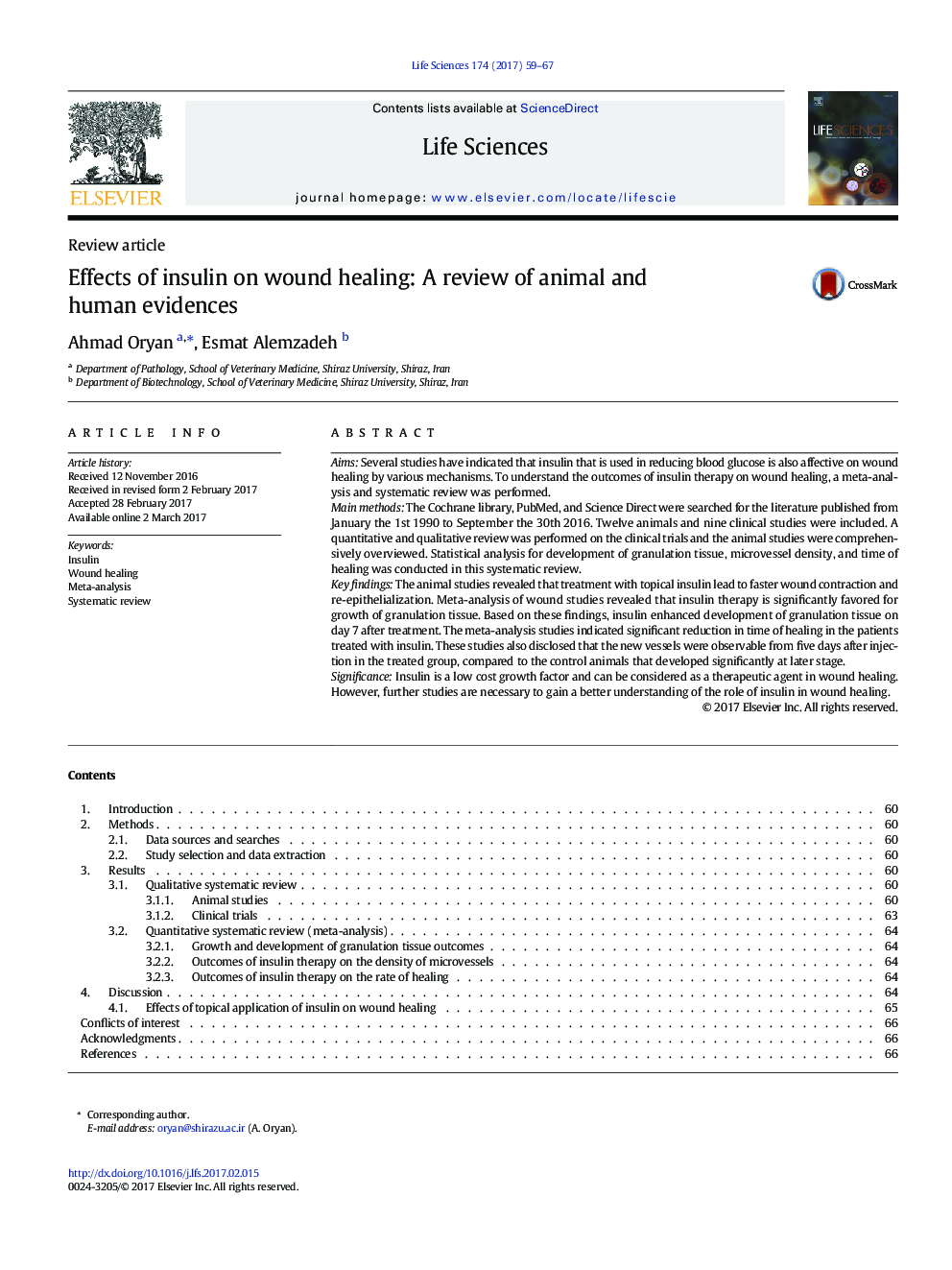| Article ID | Journal | Published Year | Pages | File Type |
|---|---|---|---|---|
| 5556974 | Life Sciences | 2017 | 9 Pages |
AimsSeveral studies have indicated that insulin that is used in reducing blood glucose is also affective on wound healing by various mechanisms. To understand the outcomes of insulin therapy on wound healing, a meta-analysis and systematic review was performed.Main methodsThe Cochrane library, PubMed, and Science Direct were searched for the literature published from January the 1st 1990 to September the 30th 2016. Twelve animals and nine clinical studies were included. A quantitative and qualitative review was performed on the clinical trials and the animal studies were comprehensively overviewed. Statistical analysis for development of granulation tissue, microvessel density, and time of healing was conducted in this systematic review.Key findingsThe animal studies revealed that treatment with topical insulin lead to faster wound contraction and re-epithelialization. Meta-analysis of wound studies revealed that insulin therapy is significantly favored for growth of granulation tissue. Based on these findings, insulin enhanced development of granulation tissue on day 7 after treatment. The meta-analysis studies indicated significant reduction in time of healing in the patients treated with insulin. These studies also disclosed that the new vessels were observable from five days after injection in the treated group, compared to the control animals that developed significantly at later stage.SignificanceInsulin is a low cost growth factor and can be considered as a therapeutic agent in wound healing. However, further studies are necessary to gain a better understanding of the role of insulin in wound healing.
Graphical abstractDownload high-res image (154KB)Download full-size image
